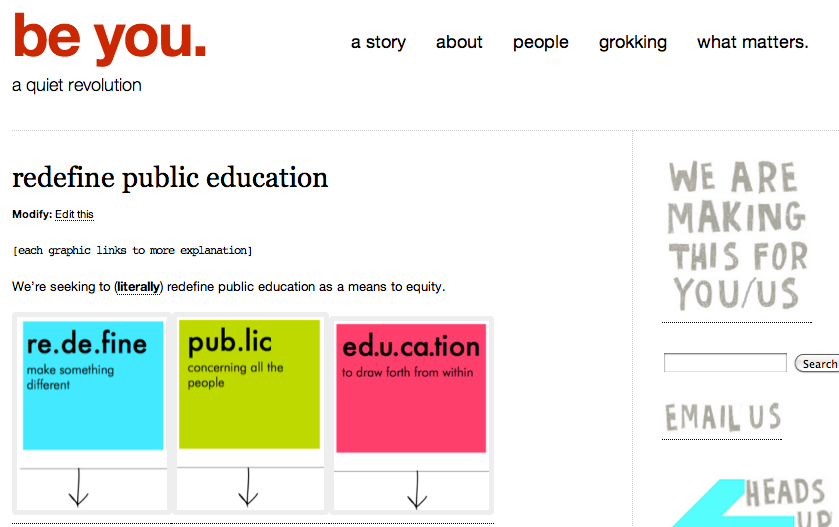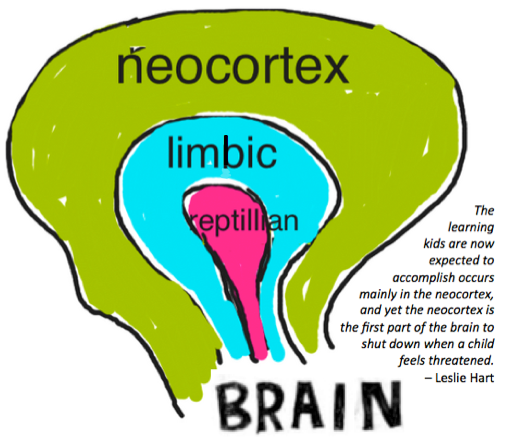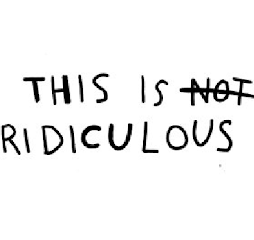seb on fb
to market their products..?
http://www.filmsforaction.org/
World Economic Forum (@Davos)
8/19/15 5:45 AM
Why we need new theories to explain wealth inequality wef.ch/1JqdYES pic.twitter.com/yqLsLrzo3b
fb by david h
he flipside of https://www.youtube.com/
World Economic Forum (@Davos)
8/19/15 5:45 AM
Why we need new theories to explain wealth inequality wef.ch/1JqdYES pic.twitter.com/yqLsLrzo3b
Sharply rising inequality of labour income focuses attention on inequality of human capital in its most general sense:
- Starting with unequal prenatal development of the foetus;
- Followed by unequal early childhood development and investments by parents;
- Unequal educational investments by parents and society; and
- Unequal returns to human capital because of discrimination at one end and use of parental connections in the job market at the other end.
?
Given such transmission across generations, it can be shown that the long-run, ‘dynastic’ inequality will also be higher (Kanbur and Stiglitz 2015). Although there have been advances in recent years, we still need fully developed theories of how the different mechanisms interact with each other to explain the dramatic rises in interpersonal inequality in advanced economies in the last three decades.1
One counter argument is that what matters is not inequality of ‘outcome’ but inequality of ‘opportunity’. According to this argument, so long as the prospects are the same for all children, the inequality of income across parents should not matter ethically. What we should aim for is equality of opportunity, not income equality. However, when income inequality across parents translates into inequality of prospects across children, even starting in the womb, then the distinction between opportunity and income begins to fade and the case for progressive taxation is not undermined by the ‘equality of opportunity’ objective (Kanbur and Wagstaff 2015).
sandymaxey (@sandymaxey)
8/19/15 5:46 AM
Limits to the "get educated" admonishments. twitter.com/iPublicPolicy/…
graduate-school enrollment swelled over the past decade, the number of Americans owing at least $100,000 in student debt more than quintupled to 1.82 million as of Jan. 1, New York Federal Reserve data show. The number of all student borrowers nearly doubled to 43.34 million.
Propelling the surge in grad-school debt is a welter of federal programs that make it easy for students to borrow large amounts, then to have substantial chunks of those debts eventually forgiven. Critics of the system say it makes it easier for graduate schools to raise tuition, and for some high-earning graduates such as doctors to escape debts they can afford to repay.
Critics say offering unlimited loans to students, with the prospect of forgiveness, creates a moral hazard by allowing borrowers to amass debts they have little hope or intention of repaying, all while enriching institutions and leaving taxpayers to pick up the tab.
After borrowing to earn her bachelor’s, Ms. Kurowski-Alicea says, her main motivation for earning a master’s and then a doctorate was to postpone repaying her student loans, which she said were too high for her minimum-wage income at the time. The government doesn’t require payments while students are in school.
“There’s no way to pay it afterward. It’s a continuous cycle,” says Ms. Kurowski-Alicea, of Clermont, Fla.
.@GarAlperovitz recently sat down and discussed transforming the current system w/us: http://t.co/P4o3kl8zqY#NextSystem
Original Tweet: https://twitter.com/
Original Tweet: https://twitter.com/
We are at a moment in history where we are facing what can only be called systemic difficulties. Ultimately that means we are going to have to develop a way to transform the system. That’s the challenge. It’s important to clarify that neither of the old models—traditional corporate capitalism in America and state socialism––neither of those models are going to give us the right answer. So we are going to have to build and create pragmatically from the bottom up and build a new direction if we want to deal with real democracy, poverty, ecological sustainability, global warming, race issues, income distribution, and wealth distribution.
The first is we’re planning a series of meetings and conferences starting in 2016 to bring together people who understand this. We want to start a very explicit debate around the question: what would the next system look like?
They aren’t just focused on the projects, but on the infrastructure that needs to be built to scale up and generalize those projects
Daniel Kao (@Diplateevo)
8/20/15 4:33 AM
On Reading Books diplateevo.com/reading-books/…
Paul Mason (@paulmasonnews)
8/20/15 4:37 AM
Davos Man discovers #Postcapitalism agenda.weforum.org/2015/08/how-th…
1 of 4 change consumption
2of4. change work
3of4. fair share (paul)
4of4 share fades away
It’s hard to tell which path we’re currently on. I for one hope Mason is right, and that the sharing economy will bring an end to an unsustainable system. But I fear that it’s more likely to transform the world of work in a negative way, reducing quality of life for many within society. The people championing this path are those with great power within the capitalist economy.
Meanwhile, those advocating for a path towards a more equal economy – such as grassroots organisations – are currently marginalised and disempowered. It’s clear who the odds will favour.
@zeynep @emptywheel @JoeBeOne @evacide literally the only reason for Twitter or Facebook or whatnot to obey any law is revenue.
Original Tweet: https://twitter.com/
Original Tweet: https://twitter.com/
Wheels of Change – how the bicycle empowered the women's emancipation movement http://t.co/yxicnkfcmkhttp://t.co/tVxtb26Wrb
Original Tweet: https://twitter.com/
Original Tweet: https://twitter.com/
In about an hour, catch @robertegger dish on world-changing leadership and the power of nonprofits:http://t.co/7IpmMuws3S #amexleads
Original Tweet: https://twitter.com/
Original Tweet: https://twitter.com/
http://www.yesmagazine.org/
on fb by charles
David Graeber (@davidgraeber)
8/20/15 4:39 AM
I think Greece should charge the rest of Europe for it past contributions: you know, 100 billion euros for Aeschylus, 200 bil for Socrates..
or maybe Greece should just declare copyright on all ancient authors & charge for 2500 years of outstanding royalties
Paul Mason (@paulmasonnews)
8/20/15 4:40 AM
In the final episode of the Trews @rustyrockets quotes #Postcapitalism youtu.be/FvoqQT41wos
Ira Socol (@irasocol)
8/20/15 5:41 AM
@Tim_10_ber our newest space is K-5 together. We're getting there
leap frog... to city.. birth to gave.. rev of everyday life
Jason Pamental (@jpamental)
8/21/15 6:13 AM
Likely the most important life skill (equal/related in my mind w/curiosity) “Reinvention As A Life Skill” @skap5medium.com/p/c544129e9dd1
Glenn Greenwald (@ggreenwald)
8/19/15 6:43 AM
The Ashley Madison hack is, among other things, a nice reminder that a lot more people than just Terrorists have "something to hide."
always.. so let's gershenfeld law
LSE Impact Blog (@LSEImpactBlog)
8/21/15 6:15 AM
Blogging goes hand in hand with scholarship and is now recognised as a valuable part of the academic portfoliobit.ly/1rjGqQl
What blogging never does is substitute for other academic writing. It doesn’t get counted as scholarship. It does not serve as an employment credential. (If you wish to argue that it should, I can’t help you. I’m interested in describing what is, not what ought to be …)
?
Notice that I do not say that it “substitutes” for other academic writing but that it has a place alongside what is often seen as the only legitimate (that is, countable for hiring / tenure / promotion) forms of academic writing.
?
That makes us literary types sound pretty clueless! But setting aside bumbling confusions between content and form, I actually think that “the difference between a journal article and a blog essay” is notself-evident when we’re talking about literary criticism, and that’s precisely because literary criticism isnot a science or a social science. Our preoccupation with publishing in peer-reviewed academic journals reflects some anxiety on our part about that: it’s a kind of scientism that has been beneficial in making some aspects of literary scholarship more rigorous, historically attentive, and theoretically sophisticated, but that has also shaped our professional lives in occasionally disheartening ways. To be taken seriously, we know we have to look serious, which means avoiding at all costs what was once scathingly described to me (in reference to my own work) as “the whiff of belles-lettres.”
There are kinds of literary scholarship that have a lot in common with history and the social sciences, or that are so well insulated with theoretical implications that no such unsavory whiff could possibly be detected. But a lot of what literary academics do is not so much produce new knowledge as pursue new understandings of, or new ways of understanding, literary texts. Careful close readings lie at the heart of many more elaborate scholarly projects. It is certainly possible to do this kind (or this part) of criticism without the specialized language and complex apparatus that differentiate academic from non-academic versions of it. Academic training can be hugely beneficial for this enterprise, but such training need not be conspicuous to be effective. We are experts at reading literature in interesting ways and articulating those readings — that’s what we do.
Where is the self-evident line, then, between the interpretations of novels we find in academic essays and the interpretations of novels we can find on blogs — besides some specialized vocabulary and a lot more footnotes? In both cases we can and should look closely at the quality (the intelligence, the care, the subtlety, the persuasiveness) of the interpretation, but there is a fundamental similarity in the activity represented that is at least as important as any differences. It really is the same kind of thing, just done under different circumstances, for different audiences. Why should we value it, or consider it “professional writing,” only if we do it in a style and form that severely limits the audience for it and the conversation we can have about it?
The desire to draw a firm line between what we do in academic journals and what we do elsewhere is more reflective of our desire to defend ‘professing English’ as a profession than of any really principled or inevitable difference between the two. And the results of that effort have not been altogether salutary, for criticism or for our profession. There are good reasons for us to engage with the rest of the world. It’s not as if academics are the only ones interested in literature, after all. In Canada we have been hearing a lot about ‘knowledge mobilization’: if some of the value of conventional peer-reviewed publications is precisely their stability, the value of blogs could be said to be their mobility, their flexibility, and, in their own way, their accountability — because after all, there they are, open for anyone to read and argue with. Their basic model is coduction — again, not a scientific model, but one supremely well suited to the ongoing process that is criticism.
If @NHMU is meant to preserve natural history, why invest in companies making nature history? #divest #museums
Original Tweet: https://twitter.com/
Original Tweet: https://twitter.com/
Via @Indy_Johar: #UrbanPractice #UrbanTransformation: Democracy is the power to create our own #city, our society: http://t.co/iezsQsMFfI
Original Tweet: https://twitter.com/TRU_Lab/
Original Tweet: https://twitter.com/TRU_Lab/
ICYMI, check out President Julia Stasch's essay, a “Time for Change” at MacArthur: https://t.co/7vIXUVLX1thttp://t.co/Kx9aj5B4d8
Original Tweet: https://twitter.com/macfound/
Original Tweet: https://twitter.com/macfound/
Well this is scary. Epigenetic inheritance - Study of Holocaust survivors finds trauma passed on to children's geneshttp://t.co/YCTfJFJiGk
Original Tweet: https://twitter.com/
Original Tweet: https://twitter.com/
jordan greenhall complexity in governance
fb by bruce
Pat Kane (@thoughtland)
8/22/15 2:03 AM
"The Lab right do not look like an exciting electoral prospect on their own, & I suspect they know it." Interesting.opendemocracy.net/ourkingdom/gab…
Jack (@jack)
8/21/15 2:46 PM
Campaign Zero #BlackLivesMatter joincampaignzero.org/#campaign
Young A$ata (@Ellevation_)
8/21/15 8:42 AM
Check out this hella dope article about how #CampaignZero is going to change EVERYTHING. I'm featured as well!twitter.com/jonswaine/stat…
Morten Middelfart (@dr_morton)
8/22/15 5:49 AM
"If you can't explain it simply, you don't understand it well enough." --Albert Einstein
?
part of the toolkit of our dilemma..no..?
wanting the crib notes..
icymi... am all for simplicity..
David J Bland (@davidjbland)
8/19/15 11:50 AM
The next time you hear "Don't reinvent the wheel" pic.twitter.com/9KMZLdeP1Z
Lanie Eads (@LanieEads)
8/19/15 11:03 AM
I can tell by your parking skills you've never been able to color in the lines
Indy Johar (@indy_johar)
8/22/15 6:11 AM
Arrived at @RobinHoodMAM's Pop - Up Office for 'Social Architecture of Finance' : shrd.by/qT1oWZ - really looking forward to this..
ICYMI Two reviews of Most Likely to Succeed. Tribune is a rave, NYT so-so. You decide. http://t.co/PP3nq0POPyhttp://t.co/aeocAmgDQt.
Original Tweet: https://twitter.com/
Original Tweet: https://twitter.com/
Jordan Greenhall at i4j: Attaching Ourselves to a Well-being Economy https://t.co/TNSZHHSHKK via @YouTube
Original Tweet: https://twitter.com/bkunkel3/
Original Tweet: https://twitter.com/bkunkel3/
john lennon was super not afraid to sing off key
Original Tweet: https://twitter.com/
Original Tweet: https://twitter.com/
habits, customs & beliefs keep us from fixing the world’s problems. so many deep-rooted thoughts r wrong. we need plasticity & experiments
Original Tweet: https://twitter.com/
Original Tweet: https://twitter.com/
Podcast! @lawatmargins on @KBOO talks about #racialprofiling and her NYPD arrest last year! #pdx #communityradio http://t.co/tNPwP0Lvnl
Original Tweet: https://twitter.com/
Original Tweet: https://twitter.com/
'Minunte of silence' for refugees > babies have been born outside in a city with the best healthcare in the worldhttp://t.co/7oGVVnk7D0
Original Tweet: https://twitter.com/
Original Tweet: https://twitter.com/
Ed and marriage
You can watch the film here - http://t.co/gL2ygmsZ2y https://t.co/jFn9TVDE33
Original Tweet: https://twitter.com/
Original Tweet: https://twitter.com/
bob sprankle - pain and B
Jascha Rohr (@jascharohr)
8/21/15 9:08 AM
I cant believe how little there is out there on group psychology and innovation / transformation processes. Does anyone has any idea?
I only find spiritual and esoteric websites on groups and transformation, which is nice but I need something scientific...
I already found Kurt Lewin and @ottoscharmer1 of course, but I need more substance, more examples more directly adressing group psychology!
maybe... no ones done it yet.. ie:let a human be fully human... just to see/emerge us..
ie: graeber model and min max laws
Saul Kaplan (@skap5)
8/22/15 6:25 AM
Go figure. Satellite data from war zones seems to suggest that killing each other & economies is good for the environment!
Urs Gasser (@ugasser)
8/23/15 6:23 AM
German speakers, read this interview with @PennyRed infosperber.ch/Artikel/Gesell…, who is also an incoming@berkmancenter fellow
Follow @joeyayoub @DarthNader @MahmoudRamsey who are at Beirut's #YouStink protests where police apparently just killed a protester
Original Tweet: https://twitter.com/
Original Tweet: https://twitter.com/
40% of kids who enroll in college don't get a degree within six years- it's time to jailbreak the degree.http://t.co/13QpXQ7gPo
Original Tweet: https://twitter.com/degreed/
Original Tweet: https://twitter.com/degreed/
article from 2010
I walked into a prison expecting to meet criminals. Instead, I found a community of men. (by @ClintSmithIII)http://t.co/nErp05pF0H
Original Tweet: https://twitter.com/deray/
Original Tweet: https://twitter.com/deray/
Can talking about trash drive political change in #Lebanon? – @joeyayoub @globalvoices via @AbirGhattashttps://t.co/E8oXNlpySD
Original Tweet: https://twitter.com/
Original Tweet: https://twitter.com/
A stunning shift: Facebook overtakes Google in delivering clicks to media sites. https://t.co/muGjhYiZl3
Original Tweet: https://twitter.com/kncukier/
Original Tweet: https://twitter.com/kncukier/




































